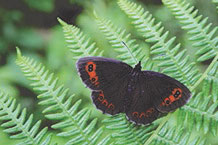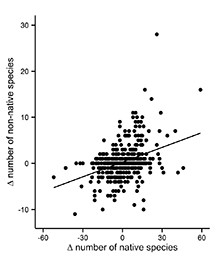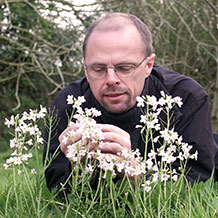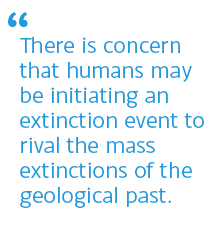Professor Chris D Thomas FRS
Research
Chris is Director of the transdisciplinary Leverhulme Centre for Anthropocene Biodiversity. He and his research group are interested in understanding how humans have transformed the biological world, and how humans might protect the world’s remaining biodiversity. His research and scientific publications fall into three main areas:
Why and how species respond to climate change.

The Scotch argus butterfly has declined in northern England and parts of southern Scotland. Research aims to discover where declining northern and mountain butterfly species are likely to survive future climate changes), and they are currently evaluating distribution changes and evolution in species that are responding to climate change.
Why some species decline and disappear, but others are successful.
Chris is interested in how climate change, land use change (habitat fragmentation), the arrival of non-native species (invasions) and persecution (hunting) alter the distributions of species, aiming to quantify gains in diversity as well as losses. Chris carries out research on the ecological and evolutionary rules that underpin gains in biological diversity; a radio interview with Chris Thomas describes some of the biodiversity gains that have taken place in the Anthropocene.

Contrary to the expectation that introduced species are generally harmful, the diversity of native plants usually increases in locations where there has been an increase in the diversity of non-native plants (CD Thomas & G Palmer. 2015. PNAS 112, 4387-4392).
Conservation strategies for a dynamic world.
Chris has had strong influence on the development of policy and practical conservation strategies in the areas of climate change and habitat fragmentation. Conservation has historically attempted to reduce or halt biological change, but this approach is not viable during a period of rapid environmental change. Chris and his group develop conservation strategies (including the benefits of connected landscapes, and moving species where required) that will enable species to survive climate change, biological invasions, and other environmental challenges.
Teaching and scholarship
![]()
I teach in the areas of ecology, evolution and environmental change. I like to help students assess information critically, generate their own ideas, and to think about the consequences of biological knowledge outside academia (contemplating how biological knowledge might affect conservation decisions).
![]()
My formal teaching concentrates on how humans have altered the biological world (the Anthropocene), covering subjects that include climate change, habitat change, the extinction of large animals, biological invasions and the conservation of biodiversity. I consider losses of biological diversity and also gains in diversity associated with evolutionary adaptation to new environments and the arrival of species in regions where they were not previously found.
![]()
My tutorials are in the area of ecology and conservation, but students are welcome to suggest any topic to discuss. The approach is very flexible, including short presentations, debates, and discussion of the philosophy as well as practice of conservation.
![]()
Undergraduate and Masters-level projects are available in any area of ecology or conservation biology. Students usually develop analyses of data that have either been collected in the lab, or they use information from the literature and databases to tackle fundamental scientific questions. Students learn new analytical methods during their projects, as well as gaining increased knowledge of the subject. The intention is for each project to generate new knowledge that was not available beforehand.



